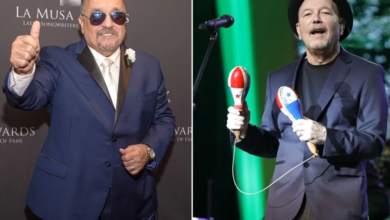We shouldn’t call it “urban genre”
When we talk about reggaeton, hip-hop or trap, we automatically associate them with the urban genre. However… is it okay for us to say it that way?
When we talk about reggaeton, hip-hop or trap, we automatically associate them with the urban genre. However… is it okay for us to say it that way? .

We could be misusing the term ‘urban genre’. / Photo: Pixabay
LatinAmerican Post | Ariel Cipolla
Listen to this article
Leer en español: Estamos expresando mal el género urbano
It is clear that reggaetón is the musical style of the last decade. Despite the fact that it has its detractors, a lot of people seem to have a great time with these songs. The Newtral website mentions that the success of this genre responds to the "mixture of its danceable rhythm together with what this music generates psychologically".
This is why, whenever an artist releases a new hit, the entire community is agitated and wants to know what it will be like. For example, Anton's website highlights that recently the Puerto Rican Cauty presented “Laberinto”, a song that “breaks with the schemes of the urban genre”, sending a message of encouragement to all those who are having a hard time.
Thus, we see that the term "urban genre" is associated as a synonym of reggaetón, that is, as if it were the same rhythm . The really funny thing is that, in reality, it is a term that has a much larger history, which is why we can see what happened to make these concepts match.
Urban genre and its history
The first thing we should say is that, as the Washington Post mentions, the labels "urban" or "urban music" were a way of "paving the way" for whites to appropriate genres of black music. That is, a term used both by the media and for the artists themselves where different styles are included.
We can see this in different styles, as in the case of trap, rap, raggamuffin, dancehall, dembow and even reggaeton. Despite the fact that, in musical terms, there are not too many similarities between all these styles, there seems to be a “street” component which is what identifies them within the same nucleus.
This situation allows that, regardless of the style of music that the artists make, everything is identified under the same genre: urban. For example, the Telemundo 62 website highlights that the successful artist Thalía "returns" to the urban genre, something she did with the Puerto Rican Myke Towers.
Also, according to what the Caracol TV website mentions, the Mexican artist mentioned that the urban genre "is the new global pop", being the global sound par excellence. Everything seems to indicate that it is not only a sound style, but a conjunction of styles that allows all the singers to identify themselves under the same pattern.
In this sense, another of the most successful reggaetoneros of this generation, the Puerto Rican De La Ghetto, also released a new album that El Heraldo highlights as having "the cream of the crop of the urban genre." This implies that it is a record work with various musical styles, although the characteristic street essence of the artist is identified.
Also read: All about "Las que no iban a salir" by Bad Bunny
However, as we already mentioned, talking about urban genre to refer only to the same musical style, such as reggaetón, entails some problems. The Slang FM website mentions that the use of the word “has a racist and discriminatory subtext”, since it is a term that the music industry used to refer to Afro-descendant genres.
This argument also has its own history. From Ibero 90.9 FM they highlight that the term "urban" comes from the DJ Frankie Crocker. When he was appointed director of programming for WBLS, New York's pioneering soul, R&B and disco station, he decided to separate white from black pop music by using the term “contemporary urban”.
We can even see that some companies in the music industry have already taken some corresponding measures. According to what Ezanime's website reports, the US label Republic Records officially banned the word "urban" to classify music, due to its historical discriminatory component.
If we take into account that, as the El Comercio website mentions, the “urban genre” -term that, we have already seen that is poorly expressed-, is experiencing its best moment in the world, due to the explosion of rhythms like reggaeton, hip-hop or trap, it is essential to begin to disassociate them so that each one flows under its own terms.





